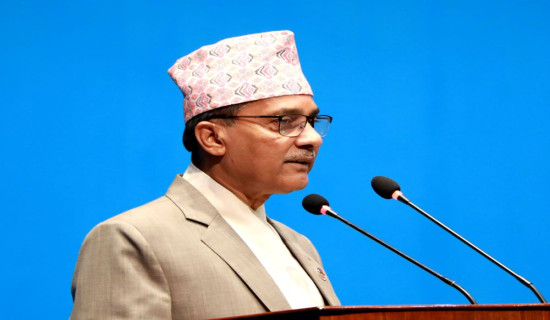- Wednesday, 14 August 2024
Reform Penal System
The management of prisons and prisoners shows the country's commitment to human rights, democracy and humanitarian laws. The inmates should be treated humanely so that they will mend their ways and jails turn into reform centres. However, most of Nepal's prisons are overcrowded, while the prisoners have been deprived of basic amenities. They suffer inhumane situations in lack of adequate space and other essentials such as healthcare, hygienic food and drinking water. And in some cases, prisoners fight to death due to violence and overcrowding. The Department of Prison Management (DoPM)'s decision to seek feedback on the amnesty of prisoners is a significant step, presenting a level of accountability.
However, the government should also focus on deep-rooted inefficiencies and systemic issues that continue to plague the country's penal system. The practice of allowing amnesty to prisoners who have served at least 50 per cent of their custody and have exhibited good conduct is grounded in humanitarian principles. It offers deserving individuals the opportunity to reintegrate into society. It also fosters rehabilitation rather than punishment. But the execution of this policy needs to be consistent. Such inconsistencies challenge public trust in the justice system.
Moreover, the ongoing practice of keeping both convicted prisoners and pre-trial detainees in the same facilities is a glaring oversight. Such a system not only violates the basic principle of justice but also causes chronic overcrowding. According to the DoPM, there is capacity of 16,000 inmates in 75 prisons in 72 districts. However 28,613 inmates are now overflowing into facilities due to which there is increasing violence and abuse. The overcrowding not only causes logistical problems but also violates human rights.
Prisoners are entitled to basic services and humane treatment, yet the current conditions deny them these fundamental rights. While crime rates and the number of inmates are increasing, the solution is not only to build more prisons but to implement comprehensive reforms that address the root cause of the congestion. This includes building adequate infrastructure, effective crime prevention measures, proper classification of inmates, and the development of alternative sentencing options for non-violent offenders.
Nepal's Criminal Code of 2017 had introduced the open prison system. As per the code, prisoners are allowed to work during the day and return to the jail at night. Such concepts have been successfully implemented in many countries. However, in Nepal, it remains limited to theory. The open prison has been constructed in Banke, but the authorities are yet to implement the concept. The open prison model remains an unfulfilled promise, without necessary legal provisions, operational guidelines, and safeguards against exploitation. The nation must follow international best practices and adopt the valuable lessons prudently.
Also, the government must prioritise developing a comprehensive legal framework. This framework should include regular audits, independent oversight, and active public participation in decision-making processes. The concerned authorities must expand inmate facilities bearing in mind the number of prisoners. It must work to improve their living conditions and ensure that they are treated with dignity and respect. The government should build a prison system that is not only efficient but also just and humane where inmates promise to turn over a new leaf. Only then can the nation claim to be following the rule of law and protecting the rights of all citizens.

















